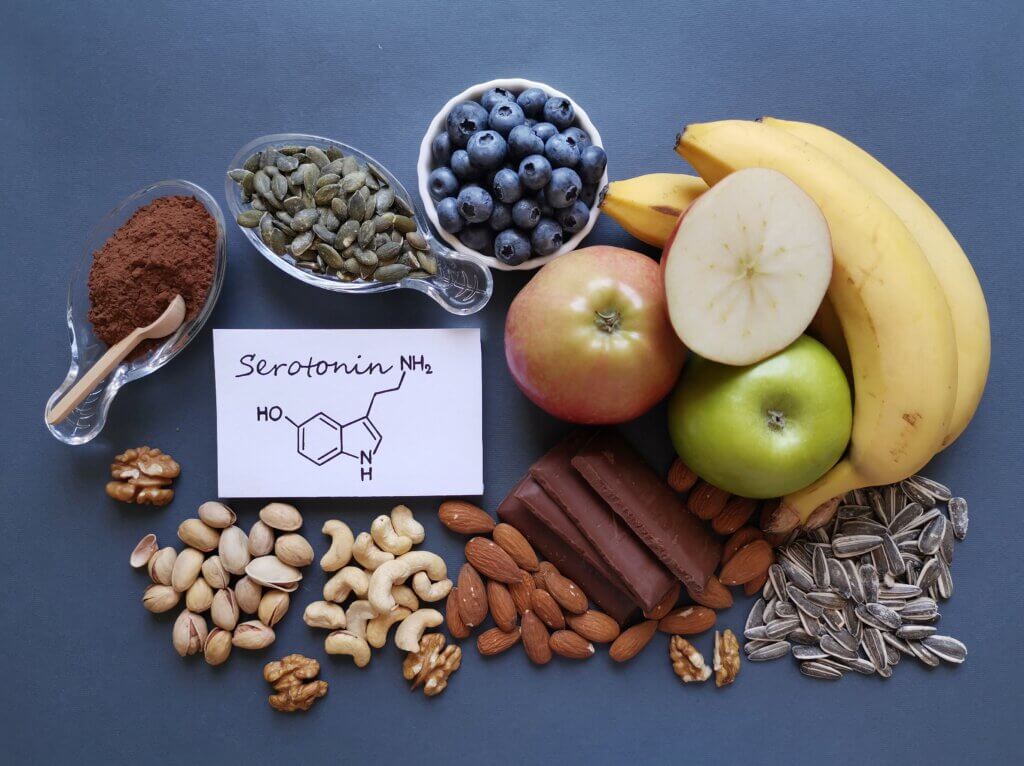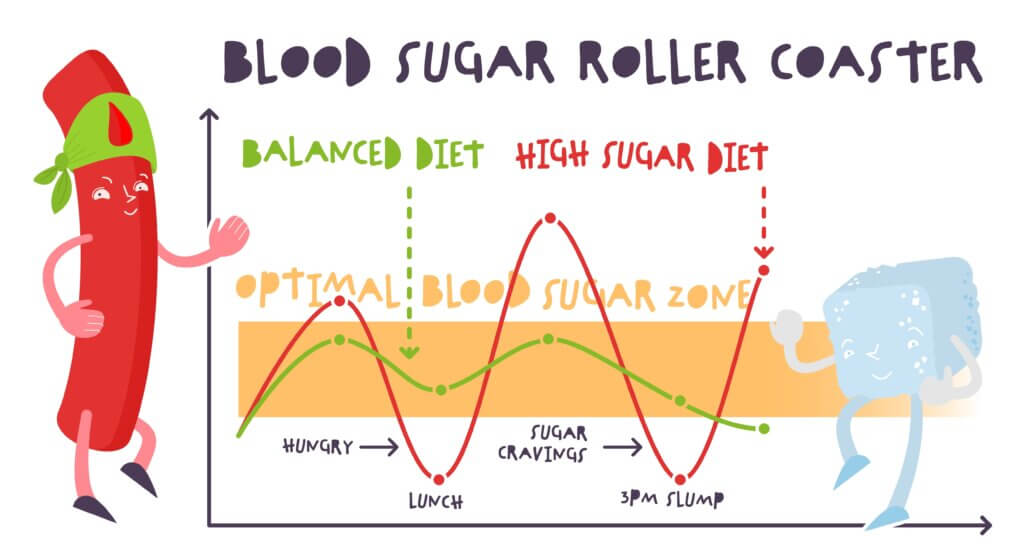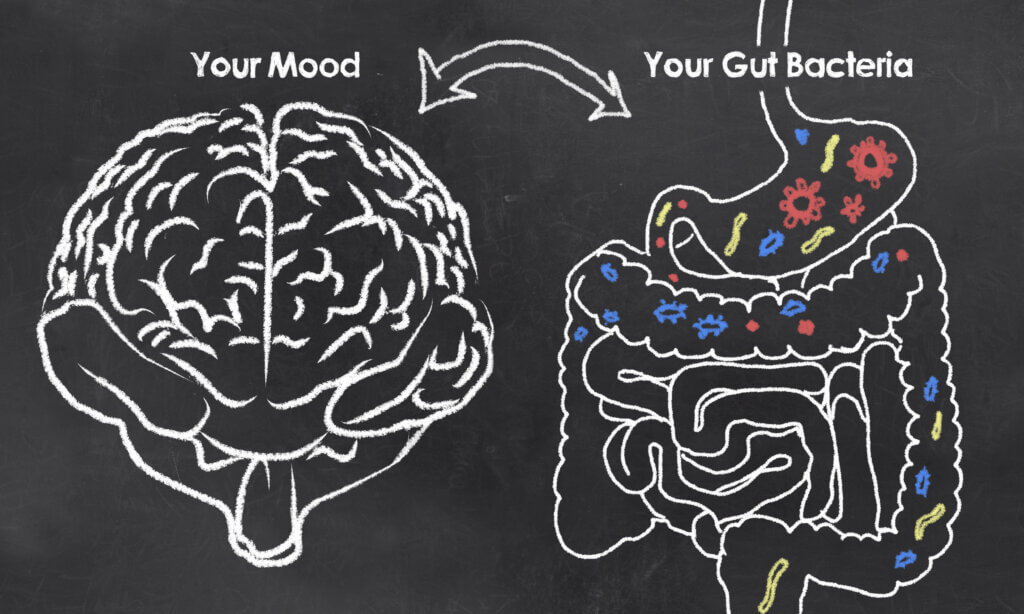Food & Your Mood: How Your Diet Could Affect Your Mental Health
According to new studies by the National Alliance on Mental Illness, over 40 million adults in the United States suffer from an anxiety disorder while about 20 million adults in the United States suffer from Major Depressive Disorder. Currently, about 1 in 4 adults suffer from a mental illness in the United States. These numbers don’t take into account the many individuals who go undiagnosed, so most likely those numbers are actually much higher. The United States is truly in a mental health crisis.
Whan adult is diagnosed with a mental illness, they may begin to see a therapist, but most will begin taking a prescribed medication. It is no secret that the field of psychiatric medications is far from perfect, so most that begin taking these medications spend years trying to find a medication that actually helps them, if they ever do, and in the meantime the medication might make them feel worse. What if something as simple as your gut health and the food you eat is the reason you are suffering from a mood disorder like anxiety or depression?
How Can Food Affect Your Mood Disorder and Mental Health?
We all know that food is essential to survival. When we break it down, the reason humans eat food is to receive nutrients, aka vitamins and minerals. So, if the body isn’t receiving the correct amount or variety of nutrients, then the body naturally starts to feel the effects of some deficits. While the effect your diet has on your body can be extremely complex, and mood disorders can be very complex, there are some simple aspects that we can all learn more about to help improve mental health:
Serotonin

Serotonin is a chemical in your brain that carries messages between nerve cells through your body and is an important factor in regulating body functions such as mood, sleep, digestion, nausea, wound healing, bone health, blood clotting, and more. The gastrointestinal tract produces about 90% of serotonin from the foods you eat. With serotonin playing such a key role in mood, sleep, and digestion, having a low amount of serotonin in your body can induce symptoms such as mood changes, depression, anxiety, memory issues, sleep problems, and more! Foods rich in tryptophan (an amino acid) can boost serotonin levels and in turn, help you to improve your mental health. Foods rich in tryptophan include turkey, salmon, nuts, seeds, and dark chocolate!
Blood Sugar & Mood Swings

Your blood sugar, or blood glucose, is the main sugar found in your body and is typically the main source of energy. Having a blood sugar level that is not stable throughout the day will in turn affect your energy levels and leave you feeling anxious, lethargic, and weak. Simply put, blood sugar affects your mood stability. It is important to eat a meal of balanced healthy protein, fats, and carbohydrates to keep your blood sugar within range and not spike our insulin levels. Think “sugar high.”
Simple carbs like sugary snacks or refined grains (“empty” carbs like pasta, white bread, rice, etc.) and even complex carbs like whole grains, fruits, and starchy vegetables, can make our blood sugar levels spike suddenly, then crash. After that crash we feel irritable, fatigued, and crave more sugar to bring back that initial spike. Meanwhile, prioritizing fat and protein alongside complex carbohydrates will slow down digestion and release a steady amount of glucose into the bloodstream, which in turn helps us to maintain a balanced blood sugar level and consistent mood.
Omega-3 Fatty Acids & the Brain

Omega-3 fatty acids are a family of important healthy fats that are important for a number of bodily functions. Emerging research has shown a strong link between omega-3 fatty acids and improved mood, reduced symptoms of depression, and regulating neurotransmitters like dopamine and serotonin, which are crucial for regulating mood. A diet that is lacking in omega-3 fatty acids may lead to increased symptoms of anxiety and/or depression so boosting the omega-3 fatty acids in your diet might just help you boost your mental health! Healthy fats are present in fatty fish like salmon or sardines, beef liver, walnuts, chia seeds, and flax seeds.
Gut Microbiota: The Gut-Brain Connection

Your gut microbiota is the bacteria that lives in the human digestive system and helps to harvest energy, digest food, and supports a strong immune defense. New research shows the bacteria in your gut can affect mood and behavior. So, if the “good” and “bad” bacteria in your gut is out of balance, then your gut is not able to do its job correctly in regulating your mood and behavior. Aim for a diet rich in fiber from fruits, vegetables, and fermented foods to help promote a diverse and healthy gut microbiota. These beneficial bacteria produce neurotransmitters and short-chain fatty acids, which positively impacts your mood.
Micronutrients & Mood Disorders/Mental Health

Micronutrients, which are more commonly known as vitamins and minerals, are essential to maintain a functioning and healthy body. If your body is not able to adequately digest the foods you are eating or you may not be eating a healthy, balanced diet, then it is likely that your body may not be getting enough of certain vitamins and minerals to support your body operating at its best and may prompt symptoms similar to anxiety and depression.
Deficiencies in micronutrients like vitamin B12, vitamin D, iron, zinc, and folate have been associated with depression and anxiety and could have a very simple solution that does not include trying different psychiatric medications. Consuming a variety of nutrient dense foods like leafy greens, non-starchy vegetables, and properly raised meats can help to ensure you are getting plenty of these mood-supporting nutrients. Optimizing your digestion to get all the nutrients out of your food is equally important and may require some help from a Nutritional Therapy Practitioner.
Nutritional Services at The Oxford Center for Mental Health

No matter what is going on, The Oxford Center is here to help! Our nutritional services offer you the option to gather support in group classes as you learn all about food and the way food interacts with your body, or you can sign up for more personalized one-on-one support! Our functional nutrition therapy practitioner and restorative wellness practitioner is familiar with everything to do with food and your body, and she has personally gone through everything she asks clients to do!
